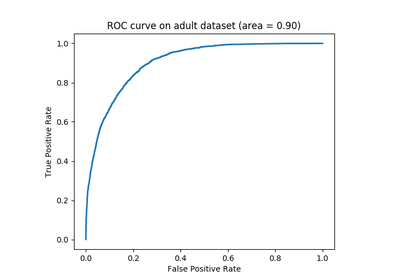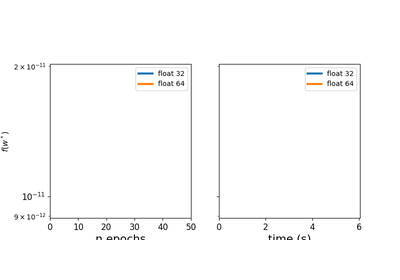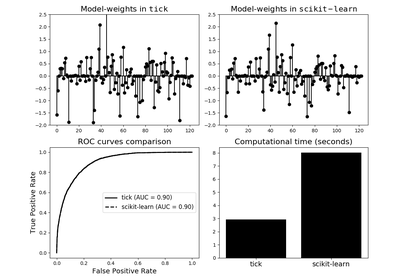tick.linear_model.LogisticRegression¶
-
class
tick.linear_model.LogisticRegression(fit_intercept=True, penalty='l2', C=1000.0, solver='svrg', step=None, tol=1e-05, max_iter=100, verbose=False, warm_start=False, print_every=10, record_every=10, sdca_ridge_strength=0.001, elastic_net_ratio=0.95, random_state=None, blocks_start=None, blocks_length=None)[source]¶ Logistic regression learner, with many choices of penalization and solvers.
- Parameters
C :
float, default=1e3Level of penalization
penalty : {‘l1’, ‘l2’, ‘elasticnet’, ‘tv’, ‘none’, ‘binarsity’}, default=’l2’
The penalization to use. Default is ridge penalization
solver : {‘gd’, ‘agd’, ‘bfgs’, ‘svrg’, ‘sdca’, ‘sgd’}, default=’svrg’
The name of the solver to use
fit_intercept :
bool, default=TrueIf
True, include an intercept in the modelwarm_start :
bool, default=FalseIf true, learning will start from the last reached solution
step :
float, default=NoneInitial step size used for learning. Used in gd, agd, sgd and svrg solvers
tol :
float, default=1e-5The tolerance of the solver (iterations stop when the stopping criterion is below it). By default the solver does
max_iteriterationsmax_iter :
int, default=100Maximum number of iterations of the solver
verbose :
bool, default=FalseIf
True, we verbose things, otherwise the solver does not print anything (but records information in history anyway)print_every :
int, default=10Print history information when
n_iter(iteration number) is a multiple ofprint_everyrecord_every :
int, default=10Record history information when
n_iter(iteration number) is a multiple ofrecord_every- Attributes
weights :
numpy.array, shape=(n_features,)The learned weights of the model (not including the intercept)
intercept :
floator NoneThe intercept, if
fit_intercept=True, otherwiseNoneclasses :
numpy.array, shape=(n_classes,)The class labels of our problem
-
__init__(fit_intercept=True, penalty='l2', C=1000.0, solver='svrg', step=None, tol=1e-05, max_iter=100, verbose=False, warm_start=False, print_every=10, record_every=10, sdca_ridge_strength=0.001, elastic_net_ratio=0.95, random_state=None, blocks_start=None, blocks_length=None)¶
-
decision_function(X)[source]¶ Predict scores for given samples
The confidence score for a sample is the signed distance of that sample to the hyperplane.
- Parameters
X :
np.ndarrayorscipy.sparse.csr_matrix, shape=(n_samples, n_features)Samples.
- Returns
output :
np.array, shape=(n_samples,)Confidence scores.
-
fit(X: object, y: numpy.array)[source]¶ Fit the model according to the given training data.
- Parameters
X :
np.ndarrayorscipy.sparse.csr_matrix,, shape=(n_samples, n_features)Training vector, where n_samples in the number of samples and n_features is the number of features.
y :
np.array, shape=(n_samples,)Target vector relative to X.
- Returns
self : LearnerGLM
The fitted instance of the model
-
get_params()¶ Get parameters for this estimator.
- Returns
params :
dictParameter names mapped to their values.
-
predict(X)[source]¶ Predict class for given samples
- Parameters
X :
np.ndarrayorscipy.sparse.csr_matrix, shape=(n_samples, n_features)Samples.
- Returns
output :
np.array, shape=(n_samples,)Returns predicted values.
-
predict_proba(X)[source]¶ Probability estimates.
The returned estimates for all classes are ordered by the label of classes.
- Parameters
X :
np.ndarrayorscipy.sparse.csr_matrix, shape=(n_samples, n_features)Input features matrix
- Returns
output :
np.ndarray, shape=(n_samples, 2)Returns the probability of the sample for each class in the model in the same order as in
self.classes
-
set_params(**kwargs)¶ Set the parameters for this learner.
- Parameters
**kwargs : :
Named arguments to update in the learner
- Returns
output :
LearnerGLMself with updated parameters


